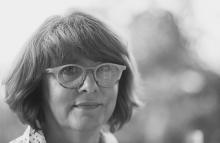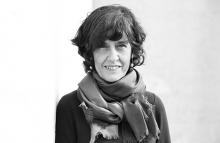ETXEAN ONDO HOME PROJECT. Person-Centred Care Model
Proyectos
Funding: Basque Government, Department of Employment and Social Policies
The Etxean Ondo Project encompasses a range of interventions based on various sources: (i) identified as relevant in the literature on environmental design of Gerontological Centres (ii) results of several qualitative studies carried out in our context in relation to the preferences of people about Gerontological centres and (iii) evidence regarding the therapeutic value of everyday activities and advances in this field of intervention.
The main objective of the actions implemented has been to achieve homelike, comfortable, safe and accessible environments that facilitate the daily lives of residents, integrating their preferences, habits and meaningful activities. To achieve all this, modifications have been incorporated in the environments, organisationally, and in the contents and development of everyday life.
In relation to the physical environment, adjustments were made to the physical spaces (rooms, halls, corridors, kitchens) in its equipment and decoration. Physical spaces were selected in the homes - in which the Project was carried out - whose size and distribution were likely to adapt to the characteristics of domestic environments. A perspective of continuity with the residential environments from where the residents came from is ensured, favouring the incorporation of furniture, and other meaningful decorative objects of their own both in public and private spaces. The lighting and decor of the rooms is now very similar to that of a domestic environment: fabrics, cushions, colour, plants etc. (See Memory Graph-attached- in which illustrations of developed interventions are presented)
In what refers to organisational dimensions, interventions regarding training, staff dedication and organisation were developed. First, voluntary direct care professionals (assistants) were identified to work on the Units. The ratio of assistants was increased, decreasing staff rotation between different spaces of the centres. Continuous staff has been provided based on the characteristics of the person-centred care model and teamwork. Individualised training sessions have been developed using audiovisual material (with the viewing of real video recordings of assistant-resident subsidiary interactions) to facilitate the acquisition of skills that enhance the independence and autonomy of residents.
The organisation of the Units revolves around everyday life. For that, the preferences and tastes of the residents have been identified and incorporated into everyday activities with therapeutic value, meaning and significance for them. As such, in order to obtain information concerning their values, interests, habits, customs and tastes, the life story of each resident was developed. If the person does not have sufficient communication resources, the collaboration of an immediate family member close to the person is requested. The information obtained, along with the relative capacities and needs of residents, from the observations made by the assistants in relation to the choices and preferences of the residents in their daily lives, has allowed for the development of interventions based on meaningful activities of daily life. This allows the assistants to encourage, initiate or maintain resident participation (taking into account their functional and cognitive abilities) in activities such as starting a load of wash, drying clothes, setting and clearing the table, folding and ironing garments, etc.
Finally, regular meetings are scheduled with the Technical Team (doctor, nurse, psychologist, etc.) with the teams of assistants, modifying the decisions regarding the care that is adopted based on the information provided by the assistants who act as residents' "professional references." .
Objectives
General objectives
- Encourage elderly people in need of support and care, who reside at home or attend day care centres, receive them according to their wishes and preferences in the best conditions, ensuring their greater independence, autonomy and personal wellbeing.
- Generating, through this pilot, knowledge about the suitability and efficiency of applying the Person-Centred Care Model centred in the people in residential centres
Specific Objectives
- Identify and develop appropriate environmental changes facing the needs, preferences and daily life of the recipients of the experience
- Promote the identification of resources and personal skills of older people in situations of dependency in order to promote independence and personal autonomy.
- Encourage the acquisition and practice of professional skills of caregivers appropriate residential care model which is based on experience
- Identify and develop appropriate organisational guidelines for the development comprehensive person-centred model.
- Contribute to establish and implement the functions of the "professional reference"; the professional key for the development of the model.
- Getting empirical evidence regarding the application of the person-centred care mode in residential centres and day centres for the elderly
Results
- "Etxean Ondo Homes" is an initiative developed by the Department of Employment and Social Policy of the Basque Government within the framework of a collaboration agreement with the Matia Fundación Gerontological Foundation, aimed at the transformation of the Care Model in gerontology centres.
- The project that is presented, first developed in our country, aims to respond to the preferences to the elderly in situations of dependence in relation to their desires to live at home or “as if at home”
- Its development has allowed the identification and development of excursions, residents of gerontological centres, their desires, tastes and preferences. In addition, they have been able to establish the effects that the interventions have been had on the quality of life of the participating residents, family members and professionals involved.
- In addition, the project has encouraged the development of Instructional Materials, Reports and Audiovisual documents that constitute first order resources for the generalisation of new professional practices associated with the care preferences of elderly citizens in situations of dependency.
- Etxean Ondo Homes is, ultimately, a pioneering and innovative experience in our country, in which research and care is integrated and is contributing, based on the identified impact, to changing the traditional negative image homes for the elderly in situations of dependency stir up in our country.


